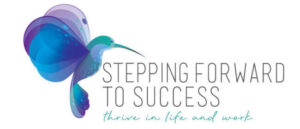Is it possible to have your cake and eat it too?
Yes, the old saying asks a very valuable question. Is it possible to have it all?
Can you fit work, family and personal commitments into your life and balance it all without any of the balls dropping?
Yes, you can. You just need to create the right work-life balance.
I know, I know. You have heard of this solution many times and struggled to create it in the past. But we are about to change all of that by exploring the practical aspects of work-life balance and how you can create a balance that actually works for you.
Let’s get to it.
Personal Fulfillment: How To Actually Balance Work and Life Effectively

What Is Work-Life Balance?.
Work-life balance is something you have probably heard a lot about! But what is it really?
Well, it refers to the “balance” you create between the amount of time and energy you spend on work and the other aspects of your life, such as family, personal interests, and social activities. It is the ability to prioritise and manage your professional and personal commitments in a way that allows for a fulfilling and satisfying life both inside and outside of work.
Achieving a healthy work-life balance is important for overall wellbeing, reducing stress, and avoiding burnout. It can be achieved through setting clear boundaries, effective time management, prioritising self-care, and maintaining a healthy perspective on work and personal life.
The Benefits Of Striking The Right Balance
This is not a concept that should be brushed off lightly, there are huge benefits to getting the balance between your work and personal life right. They are:
- Improved mental and physical health: A good work-life balance can help reduce stress, anxiety, and other mental health concerns, leading to better overall mental and physical health.
- Increased productivity: When you feel more in control of your work and personal life, you are more likely to be productive and focused during work hours. This can lead to better job performance and outcomes.
- Enhanced job satisfaction: People who have a better balance between work and personal life are more likely to be satisfied with their job, resulting in less stress and a general positivity surrounding going to and being at work.
- Improved relationships: Balancing work and personal life can mean your focus is not divided and you can be fully present when you are with your family and friends. This leads to better relationships and a more fulfilling personal life.
- Better self-care: People who prioritise work-life balance are more likely to take care of themselves physically and emotionally, leading to better overall wellbeing.
- Reduced burnout: A healthy work-life balance helps prevent burnout and exhaustion. This is obviously good for your health and can also lead to greater motivation, creativity, and job satisfaction.
Overall, achieving a good work-life balance can lead to a happier, healthier, and more fulfilling life, both personally and professionally. This all sounds really great, but how do you actually, achieve this balance?
How To Achieve Work-Life Balance
Unfortunately, there is no one proven formula to create the right balance in your life. And that is because work-life balance will look different for everyone. You need to understand what your own capabilities are in terms of work and how much time you need to dedicate to personal fulfilment.
It might take a bit of trial and error to strike the balance and you might find that some weeks are easier to achieve fulfilment than others. But, don’t let me dishearten you with these cautions! Work-life balance is still totally possible for everyone.
Following these steps can help you to establish your own balance:
1: Set clear boundaries
Boundaries are incredibly important for achieving balance. The first step is to define your work hours and stick to them as much as possible. Avoid taking work home, unless it’s absolutely necessary. If you do have to take work or study home, then have a defined time you can focus on it. When you are finished, shut the door on work time (literally if you can) and switch to life mode.
2: Prioritise tasks
While you might have a long to-do list, not everything needs to be done at once. If you operate under this mentality, then you will find yourself on a one way trip to burnout town. Instead, prioritise your tasks (both work and personal) in order of their urgency and importance. Focus on the tasks that need to be done immediately and delegate or postpone less important tasks.
3: Be conscious of your time
Time is one of your most important precious resources, you only get so much of it each day. So, you want to manage your time effectively. Be mindful of how long it takes you to do things and don’t plan for too much each day. You might find it helpful to use time management techniques like the Pomodoro technique (where you work or study in 20-min sprints) which help you focus and use your time effectively.
4: Take breaks
Taking a break is a chance to rest, recharge and refocus. This can help you to maintain energy and productivity. While it is vital to take regular breaks throughout the day, you should also find the opportunity for breaks in your weekend and longer breaks, like holidays.
5: Keep active
When you are busy, it’s easy to rush from one thing to the next and then fall onto the couch at night, collapsing in exhaustion. But, keeping your body moving (in a form of exercise you enjoy) can help reduce stress, improve your mood and increase your overall wellbeing. It also helps to keep you fit, healthy and able to tackle full days at work and all the responsibilities that come along with a family. So, make time for exercise of some kind in your schedule.
6: Practice self care
Part of striking the work-life balance is to take time for yourself to engage in the activities that bring you joy and relaxation. That could be anything from playing a team sport to reading a book in solitude. You might want to get out into nature, take a walk or even practice meditation. Whatever you choose, make sure it keeps you happy and fills your cup.
7: Maintain perspective
Remember that there are many important things in your life. Work or study is just one of those things. It is not everything. Keeping this a healthy perspective will allow you to prioritise your personal life and relationships as well.
8: Learn to say no
This can be one of the hardest skills to learn. But the art of saying no will save you much stress in the long term. You should be willing to say no to things that don’t align with your priorities or are beyond your capacity. Being able to do this will protect the balance that you are trying to create for yourself.
9: Surround yourself with support
Even though you are creating balance for yourself, you will still need the support of others to do that. The support can be as simple as your partner picking the kids up on a day when you have a meeting, or as involved as a coach or mentor.
Finding the right support can help you to create and maintain a good work-life balance. Support is available in many areas, and if you find you need help finding ways to achieve the balance you want to have, then reach out to me today.
If you are wanting to learn more about my packages, visit my website to discover more.
The most important thing to remember is that you don’t have to go through this journey alone. If you are beginning your provisional teaching journey, I have available a ‘Roadmap to Certification’ resource you can use to navigate your provisional teaching journey with ease.
Check out the Roadmap resource here: https://steppingforwardtosuccess.co.nz/roadmap-navigating-ece-provisional-teaching/
Click here to read more about the Roadmap or click here to purchase the Roadmap to Certification ebook for Provisional Certified Teachers. Alternatively, if you are wanting to learn more about my packages, reach out today.
Useful links:
My Website

